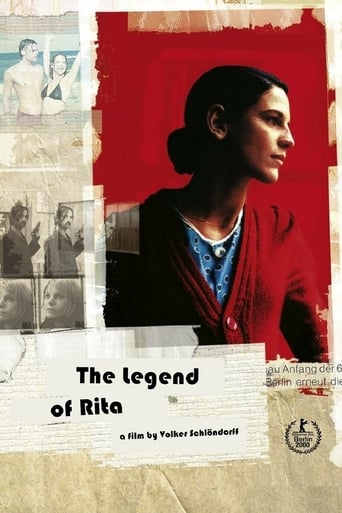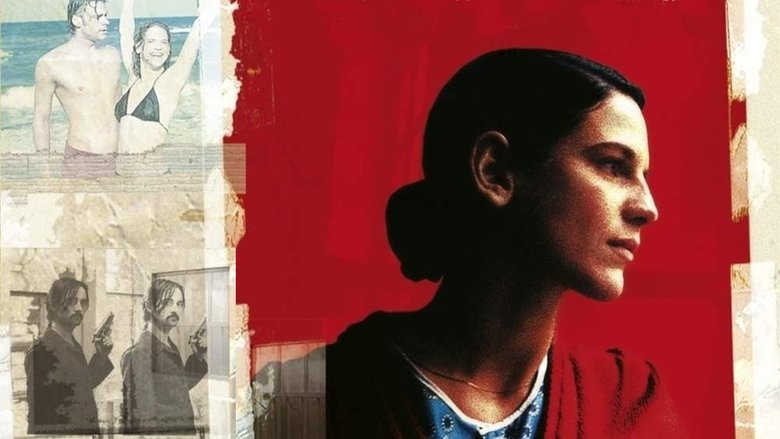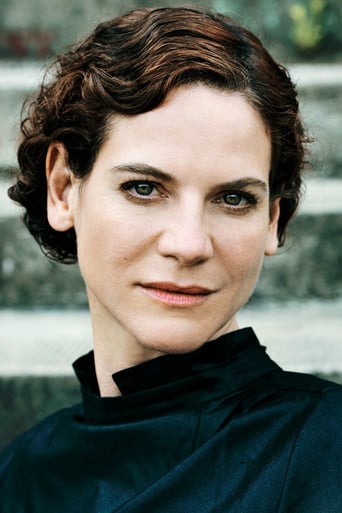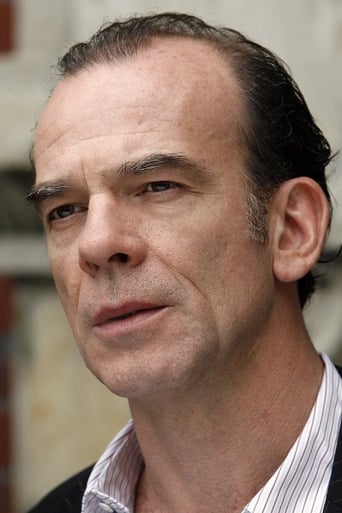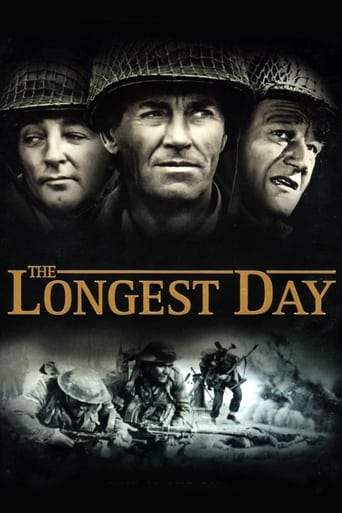The Legend of Rita (2000)
Rita Vogt is a radical West German terrorist who abandons the revolution and settles in East Germany with a new identity provided by the East German secret service. She lives in constant fear of having her cover blown, which unavoidably happens after the German re-unification.
Watch Trailer
Cast


Similar titles
Reviews
Simply Perfect
Purely Joyful Movie!
Powerful
Just perfect...
The Legend of Rita, this movie's English-language title, is not as hokey as it initially sounds. "Legend" was the term used by the East German Secret Police (the Stazi) for the cover stories created to disguise the identities of West German terrorists who had been secretly granted asylum in the East. The German title, Die Stille nach dem Schuss (literally The Stillness after Rapid Action), is a German phrase that sounds fine in its original language but is too abstract for colloquial translation of a film that is, among other things, an effective thriller."Schuss" in the original title refers to the bank robberies and killings shown at the beginning of the film and "Stille" to the subsequent life, east of the Berlin Wall, of Rita Vogt, a member of a terrorist cell determined to change the world by violent action. She is a fictitious character, a composite of several real people. Eleven such individuals from West Germany, did, in fact, find refuge in the East, but only on condition that they live peacefully as ordinary workers and have no contact with one another. Director Volker Schlöndorff says, in a lengthy audio commentary that accompanies silent images from the film on its Kino Video DVD, that "the episodes are authentic but the characters are somewhat fictitious." The "somewhat fictitious" Rita is assigned two identities during her years in East Germany. Initially, she works in a textile factory and develops a passionate friendship with an East German woman. Then, following her identification by another worker, she is given a new legend and becomes a child care worker for a state agency. In this identity, she falls in love with an engineer who has been assigned to work for five years in Moscow. They want to marry and have children but the Stazi doesn't want her going to Moscow out of fear of discovery by the Soviets. Rita violates her orders from the Stazi and reveals her identify to her lover. His astonishment and rejection make their separation easier.Things change for Rita with the fall of the Berlin Wall and approaching German reunification. She finds herself, alone among her workplace associates, regretting the demise of a country that, however imperfectly, tried to make human relationships more important than economic success. Once again, she is a fugitive terrorist. Preferring tragedy to capture or a life in hiding, she steals a policeman's motorcycle, drives it through a border post, and is shot and killed by a guard.The reason for East Germany's granting of asylum to West German terrorists is not entirely clear, either in the film or in real life. The closest the film comes to an explanation occurs when the members of the Red Army cell meet with their Stazi minder for a bratwurst barbecue at a pleasant rural villa. East Germany has signed the Helsinki Convention against harboring terrorists and has no interest in supporting what Lenin called "infantile Leftism." Cell members are given a choice of transportation to a third world country or remaining in East Germany. Individuals make different choices and kiss one another good bye. A Stazi executive at the barbecue suggests that a longing for lost revolutionary romanticism underlies the East Germany policy.Another aspect of the film is its portrayal of everyday life in East Germany. It does this more completely than either Good Bye Lenin (2003) or The Lives of Others (2006) although these are, in many respects, excellent movies. To Western eyes, the results are surprising. Not everything is East Germany is drab and gray. The Stazi is ubiquitous but not omnipotent. Rita wears a sexy bikini when supervising children at a Baltic beach and no one thinks anything of it. People have a variety of opinions about many different subjects. According to Schlöndorff's commentary, West German viewers found the portrayal of East German life insufficiently harsh but former Easterners thought it exceptionally accurate.I seldom give movies 10 ratings but, for The Legend of Rita, I can find nothing that should have been done differently. Both Schlöndorff and Wolfgang Kohlhaase are superb scriptwriters. Bibiana Beglau plays Rita and Martin Wuttke is Erwin Hull, Rita's sympathetic Stazi minder. All of the actors are excellent. The cinematography and editing are consistently tight and competent. From what I can see, the film has no weak links. I had not previously heard of it and got its DVD, almost by accident, from a public library. Wonderful discoveries are possible.
This is the type of film that I wish were made more often. Volker Schlondorff reminds us that he's still a terrific director and really has gone back to his roots with this film. Rita is presented as a terrorist. Then seems to have left the revolution for another life and hope her past doesn't catch up. Were not suppose to feel pity or hatred towards this woman. Just watch and experience a fascinating character that is presented and not judge her morals. Hollywood would have ruined this film by making Rita sympathetic. Bibiana Beglau plays Rita and she is absolutely magnificent. Strong, smart and opinionated. But she's also vulnerable so her character is very interesting to watch. Beglau has a real presence on film and the strength of her personality shows throughout this film. I cannot wait to see her again in another film. Schlondorff's film and its portrayal of Rita is unflinching. The last scene in the film comes suddenly and leave's a haunting image in our psyche. The song that plays as the film ends I found to be very affecting and helps create an indelible aura for the film. Very strong film by a great director and acted by a great talent in Beglau.
Schlondorff has no strong sense of what to make of his terrorist characters. Rita is idealistic but her personal life is pulled in rather conventional bourgeois directions. The film points to the paradox of idealistic murder and suggests that society has no ability to appreciate the complexity of such a character, but why should it when even a work of art like this film is unable to explore what's inside its title character. A muddled film about a muddled time.
Maybe it's the cultural specificity of the piece, but somehow Volker Schlondorff's "The Legends of Rita" fails to hit the right emotional chords, where essentially the film's humanism-over-politics thematics want to evoke in the audience. Don't get me wrong, "Rita" is an excellently crafted film, subtle and never forceful. The film succeeds above and beyond expectations in its depiction of the latter years of the GDR, portraying an ideologically bankrupt nation whose environments and inhabitants seem to be caught in a state of limbo. Perhaps Schlondorff's acquiring of the former DEFA (and UFA before it) Babelsburg studios is the main reason for the authenticity of his vision of the former East. As well, this is a departure from the realm of fantasy that Schlondorff had probed history within in such works as "The Ogre" and "The Tin Drum." Instead, as with Bertolucci's "Besieged," the director has returned to his roots in filmmaking and provided a once-again fresh, verité aesthetic. This could very well be a companion piece to "The Lost Honour of Katharina Blum," although, as I mentioned earlier, the emotions fall flat here, failing to deliver an ultimate, devastating "punch."

